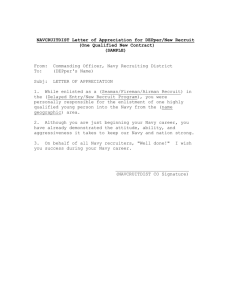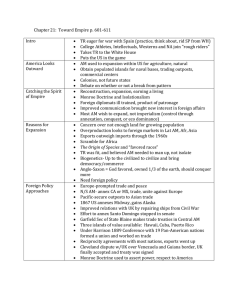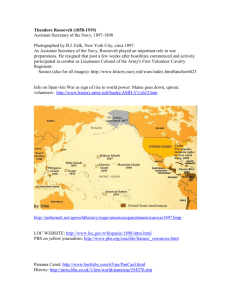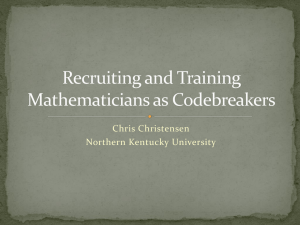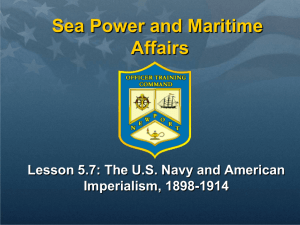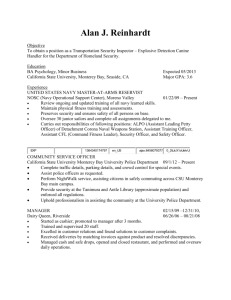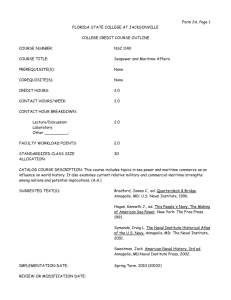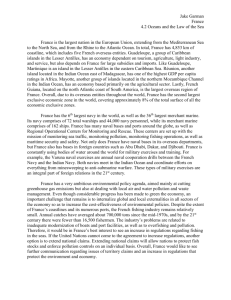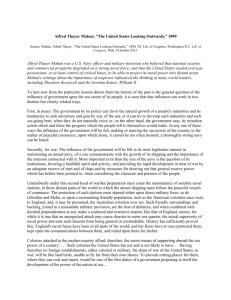The Navy in the English Civil War
advertisement
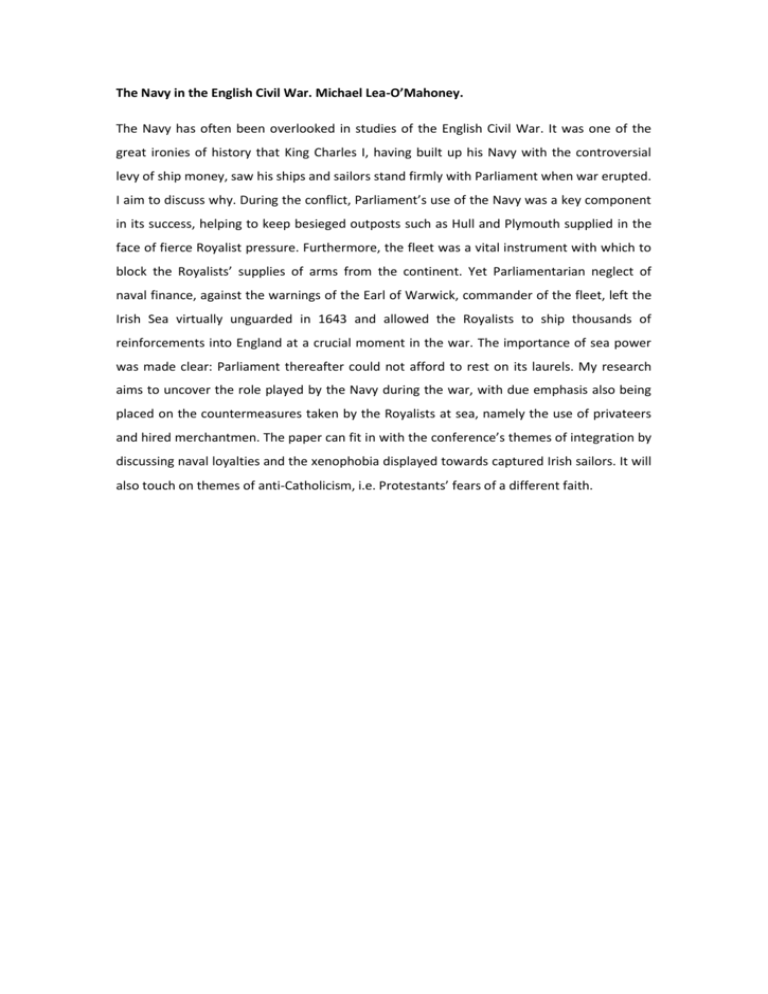
The Navy in the English Civil War. Michael Lea-O’Mahoney. The Navy has often been overlooked in studies of the English Civil War. It was one of the great ironies of history that King Charles I, having built up his Navy with the controversial levy of ship money, saw his ships and sailors stand firmly with Parliament when war erupted. I aim to discuss why. During the conflict, Parliament’s use of the Navy was a key component in its success, helping to keep besieged outposts such as Hull and Plymouth supplied in the face of fierce Royalist pressure. Furthermore, the fleet was a vital instrument with which to block the Royalists’ supplies of arms from the continent. Yet Parliamentarian neglect of naval finance, against the warnings of the Earl of Warwick, commander of the fleet, left the Irish Sea virtually unguarded in 1643 and allowed the Royalists to ship thousands of reinforcements into England at a crucial moment in the war. The importance of sea power was made clear: Parliament thereafter could not afford to rest on its laurels. My research aims to uncover the role played by the Navy during the war, with due emphasis also being placed on the countermeasures taken by the Royalists at sea, namely the use of privateers and hired merchantmen. The paper can fit in with the conference’s themes of integration by discussing naval loyalties and the xenophobia displayed towards captured Irish sailors. It will also touch on themes of anti-Catholicism, i.e. Protestants’ fears of a different faith.

